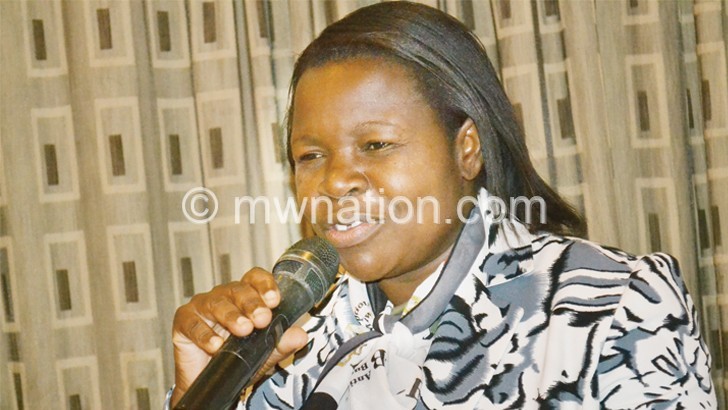ACB explains Cashgate cases delay
The Anti-Corruption Bureau (ACB) has attributed delays in prosecution of Cashgate cases to new information the body has found concerning some cases.
In some instances, according to ACB, new information has come about following the handover of the last case files by British forensic auditors, Baker Tilly, which has been helpful in the investigations of Cashgate cases currently in court.

different stages
Some of the cases that have stalled for the past three months include the K334.9 million case involving Muzipasi Moyo and Felistas Njathu who was added to the case when several witnesses had already testified, the Leonard Kalonga and Angela Katengeza case involving K90 million.
Former Accountant General David Kandoje has not appeared in court to answer charges of abuse of office for the loss of K500 million ($1 million) since he was granted bail in February this year while an K11 million ($22 000) Cashgate involving Blantyre-based businessperson Masankho Chingoli has been awaiting judgement for close to a year now.
A K338 million ($676 000) theft and money laundering case involving businessperson Godfrey Dzanjalimodzi was last heard in September last year and the same has been observed of the K520 million ($1 million) buses case involving Kalonga; a K542 million case involving Kalonga, Laura Savala and others which has not even come for plea and directions.
The ACB is prosecuting Cashgate cases alongside the Directorate of Public Prosecutions (DPP).
Reacting to observations that Cashgate trials have stalled, ACB senior public relations officer Egrita Ndala told The Nation that delays in some cases have arisen due to complexity of the cases.
“In the case of prosecution of Cashgate suspects, the delays in some cases may arise from the complexity of the cases as some new information keeps coming in, which may warrant the bureau to change the course of prosecution to be taken,” Ndala said in response to a questionnaire.
She confirmed that the Cashgate cases were at different prosecution stages.
Said Ndala: “Some are at prosecution stage, others at defence, case to answer and in others the bureau is yet to make disclosures. Some are awaiting judgement.”
ACB’s role in the setting of dates for the prosecution of cases is the submission of all the necessary documents to the courts for the commencement of trial, which entails that the bureau is ready with the case.
ACB has also attributed the delays to the departure of staff apart from complicated legal processes across foreign jurisdictions and funding challenges.
On funding, ACB budget for 2015/16 has nearly doubled to K2.4 billion ($4.8 million) from K1.4 billion ($2.8 million) in the 2014/15 financial year.
Ndala also stressed that ACB did not work in isolation, but with other stakeholders such as the Judiciary. Thus, she said, cooperation, not increase in funding alone, is also a critical factor.
The Judiciary, through its head, Chief Justice Andrew Nyirenda, has disclosed that it would be drawing up a time frame for the conclusion of Cashgate cases apart from formulating case management systems to speed up the cases.
While some of the delays in Cashgate cases have been attributed to the process of plea bargaining, there is currently no legal backing of the practice.
A Nation on Sunday investigation earlier this year found that only 15 out of 69 cases brought before court were active as of April.





